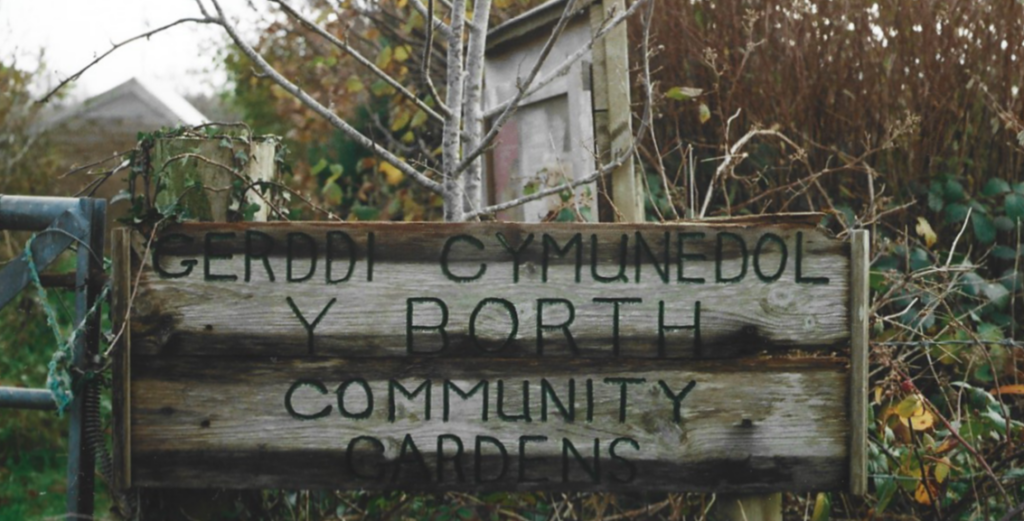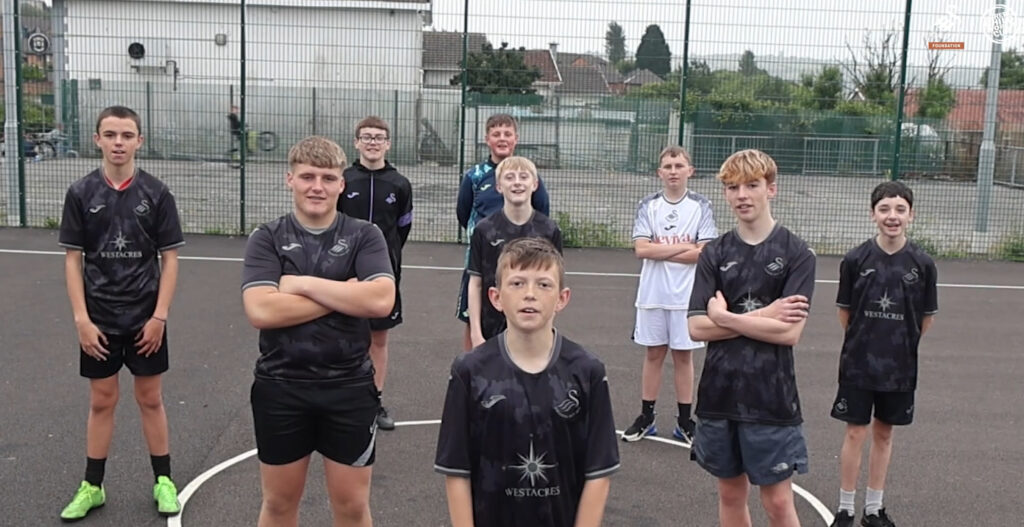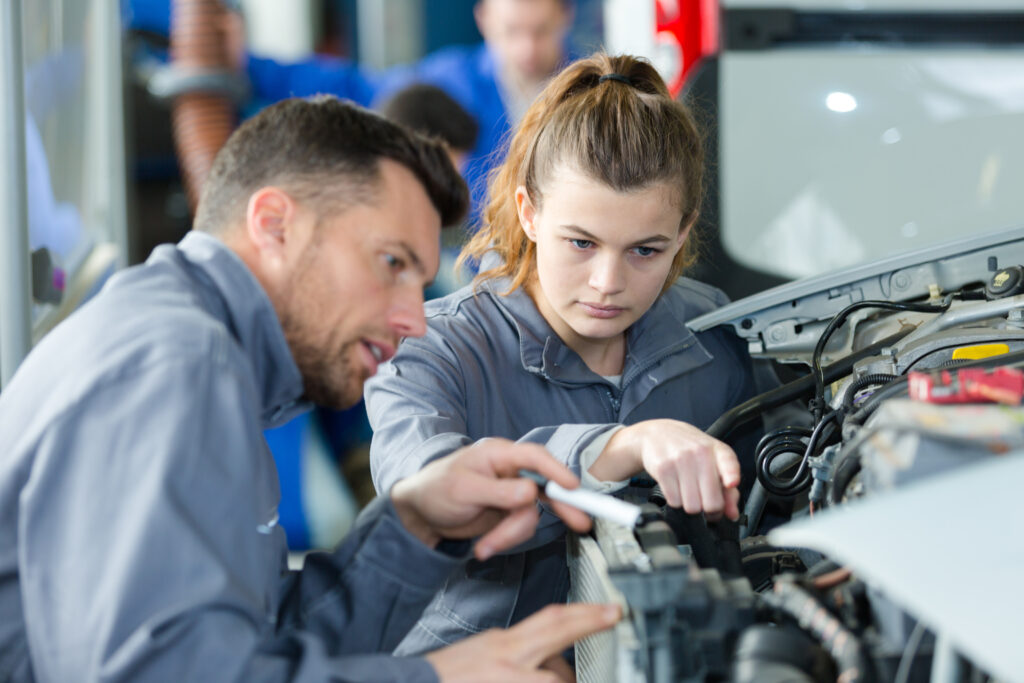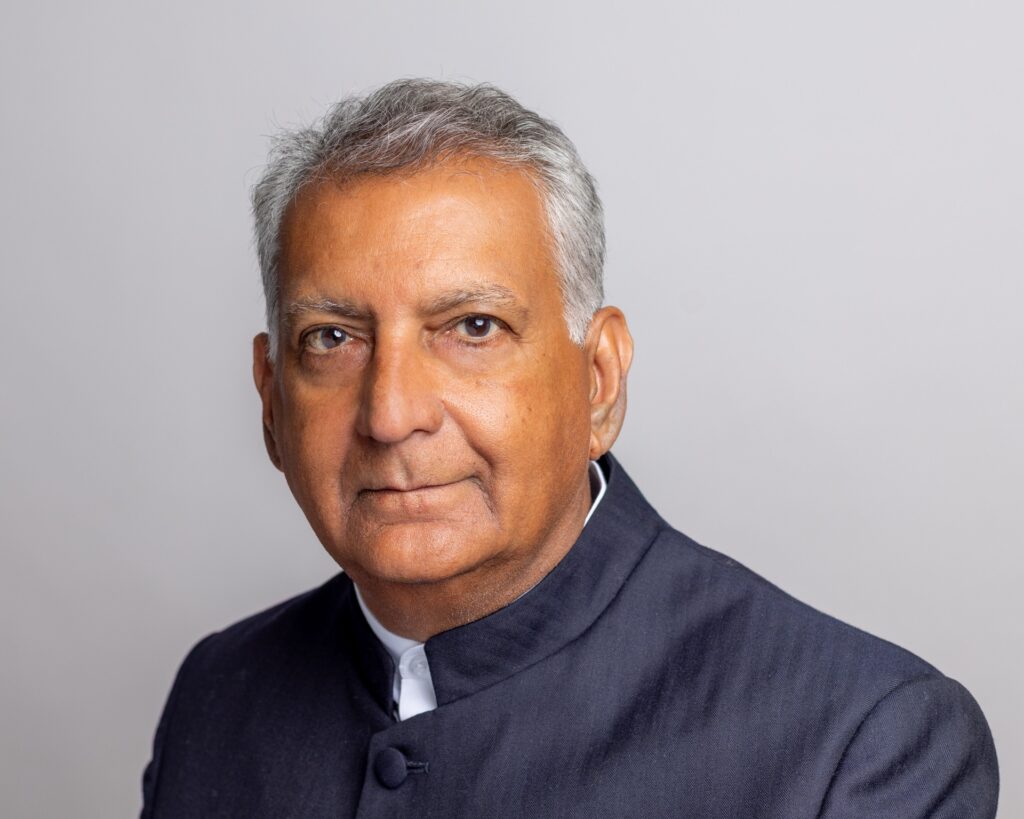Maeve Moran interviews individuals from Mid Wales – Wales’ most sparsely populated region – who have worked to connect people with nature and their wider community.
Throughout my dysfunctional and socially isolated childhood, most of my encounters with nature were in overgrown gardens and littered urban green spaces.
Visiting my aunt in the centre of Telford was a rare occurrence of ‘going to the countryside’, with the real countryside mostly seen on fleeting school trips. I was full of awe over the green world that existed outside of North Birmingham. The one constant thing I wanted for my future was to escape the abusive home I had been raised in – and to escape to a place away from the overwhelm of the city: one of natural beauty and peace.
When I moved to Aberystwyth for university, it felt like a whole new world opened up to me. Nature felt so unknown and unfamiliar, but immersing myself within it made me feel more energised, inspired and full of hope and purpose than anything before. While studying Wuthering Heights, Emily Brontë’s gothic vision of nature alongside depictions of abuse and restricted agency led me to consider nature in relation to female trauma and selfhood. It shaped my thoughts about my own relationship with nature: how it has helped me to process my own past and poor mental wellbeing – and to discover an identity that is not defined by them.
A few years on, I find myself at the beginning of ‘real’ adulthood and struggling to find my footing. A developing connection with nature has guided me through these times; but I have come to realise the need to go beyond myself and my immediate environment to develop my sense of self and home, especially in times of isolation. Still in Aberystwyth and thinking of the wider community, I was struck by the abundance of nature-focused community groups across the county and region despite its scattered populations.
‘I knew I had to build this [garden] and grow vegetables for the community as a way of bringing nature into people’s lives and providing them with a place of refuge and sanctuary to heal no matter their faith’
‘Reconnecting people and places’ is a key theme of Natural Resources Wales’ Mid Wales Area Statement, which recognises that, ‘in Mid Wales populations are sparse and social isolation can be a major contributor to poor mental health’. At a time where Wales is, according to Mental Health Foundation Wales, in ‘a mental health crisis’, with the ‘root causes of poor mental health including poverty […] and inequality’, nature-focused community groups are an invaluable resource in nurturing the local landscape, culture and community, especially in areas more prone to social isolation. By bringing people together with nature, they are a vital mechanism for sustainably tackling sociocultural and economic issues that face Wales and the region, such as isolation, poor mental health and the rising cost of living.
While visiting local community gardens and nature groups, I spoke to people at the heart of them about what these spaces mean for local people and their relationship with nature, their community and wellbeing.
Nick Howells from the ‘Laudato Si’ garden project in Penparcau also moved to Aberystwyth from Birmingham. Like me, he had ‘always felt drawn to nature’ in Birmingham, but ‘didn’t feel so connected to it due to the urban environment’. After moving to Mid Wales in 2008 as ‘a fresh start after addiction and trauma’, Nick recalls, ‘I got a sense of connection with nature that I didn’t have before’. But in hindsight, it seems that a connection between nature and community was missing in his life and in the lives of the people he worked with: ‘I worked in services helping people with various afflictions. I felt that there was something missing in terms of them having something to focus on – a purpose that could help them’.
The ‘Laudato Si’ garden project was set up by Nick, with ‘a few friends and a spade’, in 2018. Nick, who had ‘no experience of gardening’ named the garden after Pope Francis’ 2015 encyclical, a response to the current environmental crisis which calls for an ‘integrated approach’ to tackle ‘one complex crisis which is both social and environmental’. As a lesbian raised in a Catholic family (where faith was practised and preached very selectively) and who has settled on spiritual beliefs in adulthood, I found myself slightly apprehensive that I would feel out of place at the garden. Indeed, from its name, to its association with the Welsh Martyrs Church, to the cross and Virgin Mary statue that adorn it, the garden’s Catholic roots are evident, but to no exclusionary effect. Nick told me, ‘I knew I had to build this [garden] and grow vegetables for the community as a way of bringing nature into people’s lives and providing them with a place of refuge and sanctuary to heal no matter their faith’. Nick recalls that the project ‘started with no resources or public funding’: ‘we relied upon people’s generosity and materials we could find on our doorstep’. While the project has since received some public funding, at the heart of its growth over the past five years is ‘volunteers and the generosity of the community’, Nick says.
Gofod i drafod, dadlau, ac ymchwilio.
Cefnogwch brif felin drafod annibynnol Cymru.
Like Nick, Kate Doubleday also found herself in Birmingham before moving to Mid Wales in the 2000s. While Nick and I felt isolated in the city, Kate ‘experienced first-hand the therapeutic benefits of a natural space’ while working at Martineau Gardens, a therapeutic community garden. Kate recalls that the experience, ‘allowed me to feel part of a group. I was an isolated single-parent and I’d found somewhere I belonged’. Kate now lives in Borth and is involved with the town’s community garden that was ‘originally set up to help people who felt overwhelmed with their veg plots’. The garden grew from weekly meetings of people who Kate describes as ‘quite isolated… and in need of that connection’ with their community.
 Kate previously worked as a volunteer coordinator at Machynlleth’s Gerddi Bro Ddyfi Gardens, which she set up with a friend in 2008. Through this therapeutic wildlife community garden, ‘I wanted to initiate a project for people who felt socially isolated’, Kate says. Like ‘Laudato Si’ and Borth’s garden, the community garden ‘offered drop-in sessions for people to just “be” – to be in a natural space doing as little or as much as possible, as they wanted’.
Kate previously worked as a volunteer coordinator at Machynlleth’s Gerddi Bro Ddyfi Gardens, which she set up with a friend in 2008. Through this therapeutic wildlife community garden, ‘I wanted to initiate a project for people who felt socially isolated’, Kate says. Like ‘Laudato Si’ and Borth’s garden, the community garden ‘offered drop-in sessions for people to just “be” – to be in a natural space doing as little or as much as possible, as they wanted’.
The benefits of being able to just ‘be’ in a natural space are highlighted in mindfulness-based nature therapies, such as Shinrin-yoku, or forest bathing. Lucy McQuillan is a Shinrin-yoku guide living in Aberystwyth. The Japanese practice ‘literally means “bathing” all the senses while taking in the forest atmosphere’ and originated as ‘part of a national health programme designed to reduce population stress levels’, Lucy writes on her website. ‘Since practising mindfulness in nature’, Lucy tells me, ‘I have become even more aware of nature and how it helps my wellbeing and general mental health’ and she has utilised it to help others within the local community. ‘I now enjoy taking other people out in nature to notice, through all the senses, the detail and beauty of nature, and the benefits this brings to our health and peace of mind’, she says. Indeed, research has revealed many mental and physical health benefits of mindfulness in nature, such as boosting the immune system and lowering blood pressure, as well as lowering cortisol levels and sympathetic nerve activity – both of which arise as a response to stress.
Connecting people with nature and thus community is an essential resource in tackling social isolation in rural communities, but this cannot be done if adequate infrastructure is not put in place to include everyone.
It can be somewhat complicated to be present in the peace and beauty of nature as climate catastrophe looms. On a forest bathing session with Lucy in late November, we noted how worrying it was to still see so much green. As Kate highlights, ‘as a bigger entity than ourselves, nature grounds us. Things are recurring and solid. You can depend upon seasonal changes… when the world feels quite unstable’. But focusing on nature and its seasonal changes mindfully also reveals a lessening dependability and solidity as we increasingly see tangible effects of the climate crisis in the environment around us. Yet this is not a reason to feel despondent.
Community garden projects like Borth, Gerddi Bro Ddyfi Gardens and ‘Laudato Si’ are invaluable to the wellbeing of their communities through their integrated ecological approach – an approach that acknowledges the interconnectedness of the human and natural world and thus socioeconomic, cultural and environmental issues. Not only do these projects (like mindfulness practices such as forest bathing) provide individuals with a place to just ‘be’ no matter their background; they also allow them to take on an active role in nurturing nature at a time where it has never been more vital. In turn, nurturing nature nurtures us: our communities, our identity and our mental wellbeing – things that ground and comfort our spirit while we try to navigate an increasingly precarious world.
Despite the invaluable and promising work of these community-led groups and NRW’s commitment to ‘Reconnecting people and places’, access to nature and its resources is not equal across marginalised communities in Wales. People from Black, Asian and minority ethnic backgrounds, for example, have reported not always feeling welcome in green spaces. The Welsh Government’s 2019 ‘Review of the impact of loneliness and social isolation on health and well-being’ found that ‘feelings of social isolation and loneliness are compounded when people are stigmatised or experience discrimination’. Connecting people with nature and thus community is an essential resource in tackling social isolation in rural communities, but this cannot be done if adequate infrastructure is not put in place to include everyone – and especially those most vulnerable to social isolation.
As Bethany Handley points out in her article for the welsh agenda, ‘Welsh Landscapes, Disability and the Myth of Personal Independence’, disabled people are excluded from the natural world of Wales ‘by design’ – not only through a lack of accessibility, but through a lack of information about areas that are accessible. Kate says that when creating Gerddi Bro Ddyfi Gardens, ‘accessibility was a priority’, but that ‘one of the main issues with accessibility in community gardens is that it is very expensive and difficult to fund’. A promising way forward in ensuring nature is accessible for all – and especially those who, historically and now, have been deprived of equal access to it – is advocating for increased accessibility to community-led projects that are dedicated not only to our roles as stewards of the land that nurtures us, but also those within it.
All articles published on the welsh agenda are subject to IWA’s disclaimer. If you want to support our work tackling Wales’ key challenges, consider becoming a member.





